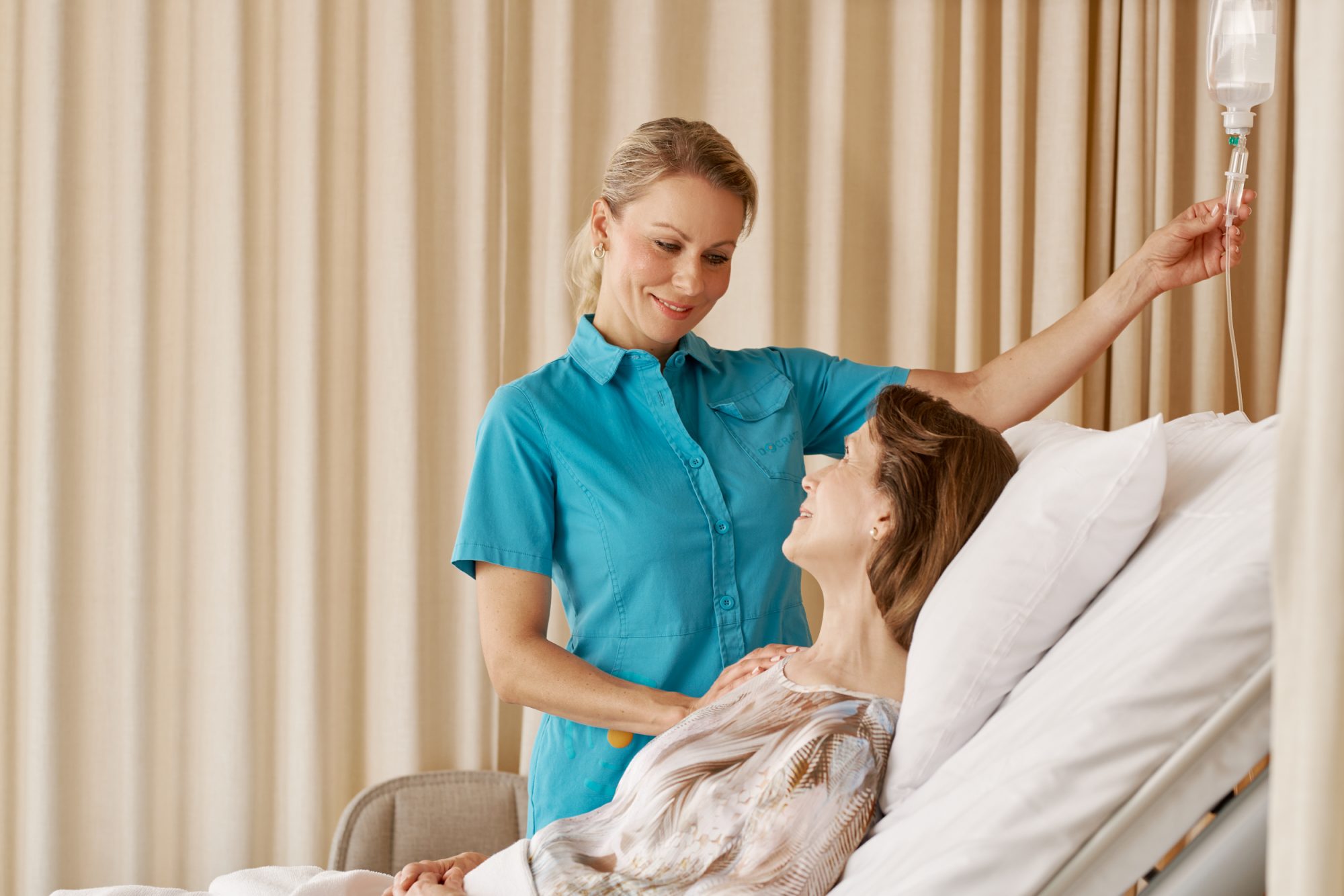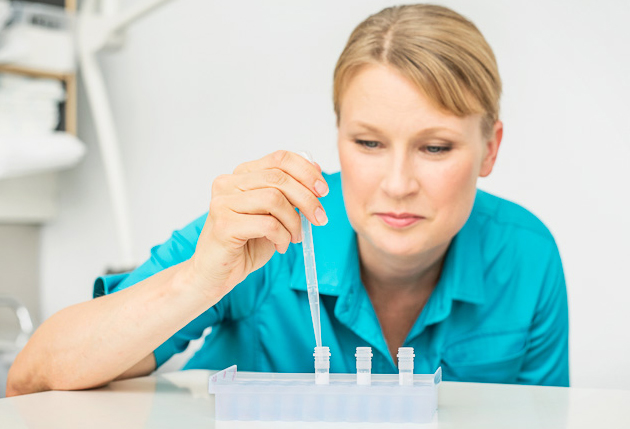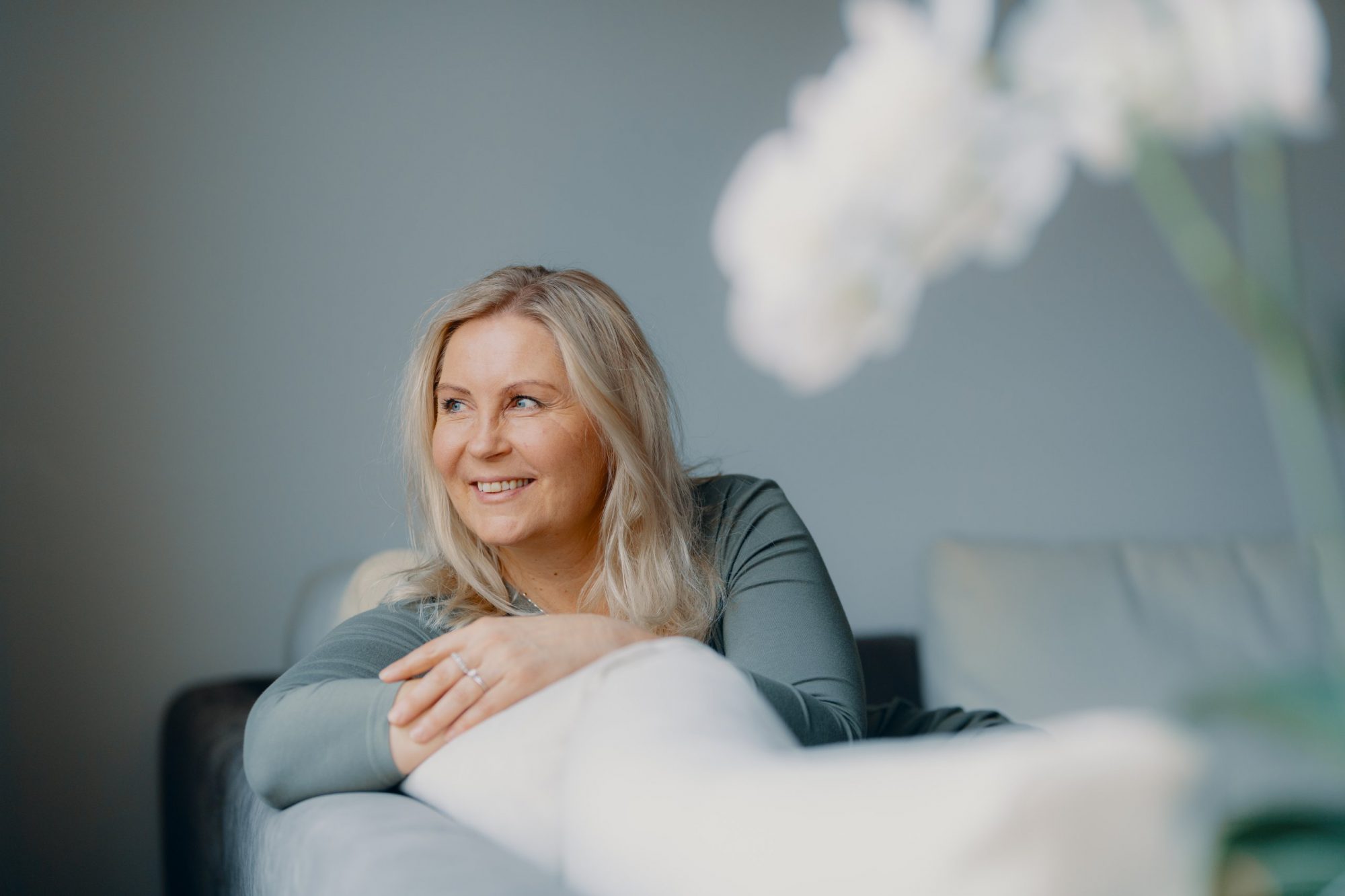The story of a breast cancer patient: You have to focus on the good things, even if the world keeps spinning

Oona Haapakorpi’s breast cancer gave the first indications of its existence after a Nordic walking trip in the autumn, when her left armpit start aching. Her condition was still poor after a pulmonary embolism diagnosed in the summer, and Nordic walking was the best way for Oona, 48, to be physically active again.
– First I thought, of course, that the armpit was sore from walking and that it was completely harmless, says Oona.
– The pain did not go away, so I wanted to be sure and booked an appointment with a gynaecologist, she adds. The gynaecologist ordered more detailed examinations just to be sure.
– I was astonished when I received the diagnose. Everything had been in order when my thorax was examined thoroughly just 3 months before. I was shocked because cancer indicates death, that’s just the way it is. I spent the first weekend after the diagnosis just talking with my husband, the anger and the grief came later, says Oona.
Easy decision after the first appointment
When the diagnosis was made in early December, Oona wished that treatment could start as soon as possible. However, the first appointment was scheduled for the next year.
– It seemed like an eternity. I wanted everything to be made clear to me and to start treatment as soon as possible, Oona says about her thoughts.
– My friend from Sweden recommended a private cancer hospital in Helsinki, says Oona.
– Coincidentally, I had just heard a Docrates Cancer Center ad on the radio as well, says Oona.
Although being alone was not unfamiliar to Oona due to the pandemic, it was devastating in this situation. Having cancer and being alone was a miserable match.
– I cannot really remember anything about the first appointments. It was tough to have an appointment alone as the pandemic restricted having someone accompany me in the hospital. The feeling I had when I stepped inside the hospital alone was dreadful, says Oona.
– Fortunately, my husband was present at the appointment by phone, especially during the first appointments. I cannot remember anything about them.
Despite everything, Oona considered the experience to be safe.
– From the very first appointment, I felt that I was the most important patient when it was my turn. The employees were one hundred percent there for just me. This made me feel safe in the middle of all the miserable things, Oona sums up.
– No one was in a hurry and I never had a worry or question that I couldn’t ask someone about. The support from the employees of Docrates was invaluable, says Oona gratefully and gives special credit to her own doctor, Chief Physician of Medical Oncology Tuomo Alanko. Oona’s councelling nurse Helena Juutinen, physiotherapist Sonja Snygg and Marianne Ekholm from chemotherapy also receive special praise from Oona. – The decision to start treatment at Docrates was very clear to me, says Oona.
Individual treatment plan
Before beginning treatment, Oona underwent diagnostic examinations, such as an MRI scan and a PET-CT scan. These verified the size and exact location of the tumor and its staging and genome. The type of Oona’s cancer was specified as triple negative breast cancer.
The cancer was treated preoperatively with cytostatic drugs, i.e. chemotherapy, which were administered over 15 weeks. The tumor shrank very well, and a breast-conserving surgery was scheduled for early May. In the operation, the surgeon removed the tumor. One sentinel lymph node still had cancer cells, so the lymph nodes in the armpit were also removed.
Oona was prescribed oral cytostatics for six months after the surgery. In addition, the operated area was treated with radiotherapy to ensure that the disease does not recur locally in the chest or nearby lymph nodes.
Gazpacho and black salsify soup
Food is an important part of Oona’s life, and it brought comfort and those precious moments in the middle of her daily life with a severe disease.
– To me, the worst side effect of chemotherapy was the loss of taste, without question. I lost my hair, but it was not nearly that big of a deal, says Oona. Oona established a strict routine with the dishes that tasted good according to her condition in different phases of chemotherapy.
– Even gazpacho had to be blended into a more fine puree as the treatment advanced so that I could get at least something eaten, says Oona. Her 50th birthday party was celebrated when her recovery was well under way and her test values were good, and the menu consisted of the dishes that brought a sense of comfort during the disease.
– We served black salsify soup and gazpacho, of course, says Oona with a smile on her face.
Great thirst for knowledge
Oona was confident about her recovery and that she could make it from the very beginning.
– Of course, I understand that the cancer can recur, but my confidence in my doctors and medicine is strong. It has been important to me that I am aware of all the facts, I have a great thirst for knowledge. One of the ways I have managed to deal with the disease was that I have been given all the possible information about my situation, treatment and recovery, says Oona.
– Tuomo always had some study reports for me to read, says Oona, smiling.
– And my questions were always answered, which relieved me, says Oona.
Celebrations in a different everyday life
It was important to Oona to have moments of celebration despite her disease. Restaurant dinners with her husband were a taste of normal life to her. Three festive dinners were important milestones in Oona’s life with cancer. She goes over her memories from that time while looking at photos from Savoy.
– I understand when seeing these photos now that that time is a thing of the past. I am grateful that we had these precious moments as well. We were given a whole section of the restaurant to ourselves, which made it possible to visit the place in the middle of the pandemic. I always try to remind myself that no one else but me can make my day better. I decided that there must be good moments regardless of the disease and the fact that the world keeps spinning, says Oona.
Severe disease leaves its mark
The severe disease has left its mark on Oona in a variety of ways.
– I have always been a positive person and tried to look forward in life, but now I know that it is important to be present in the moment, she philosophises. After her tough experience, Oona is also more worried about her loved ones.
– For example, I am in a completely new way afraid of what will happen if my husband has an accident. My understanding of what is really important in life has grown very much, says Oona.
– My husband and I have had important discussions about the practicalities that we want each other to be aware of if something bad happens. Talking has helped me clear my head as well. When I can process things, life can continue, says Oona.












